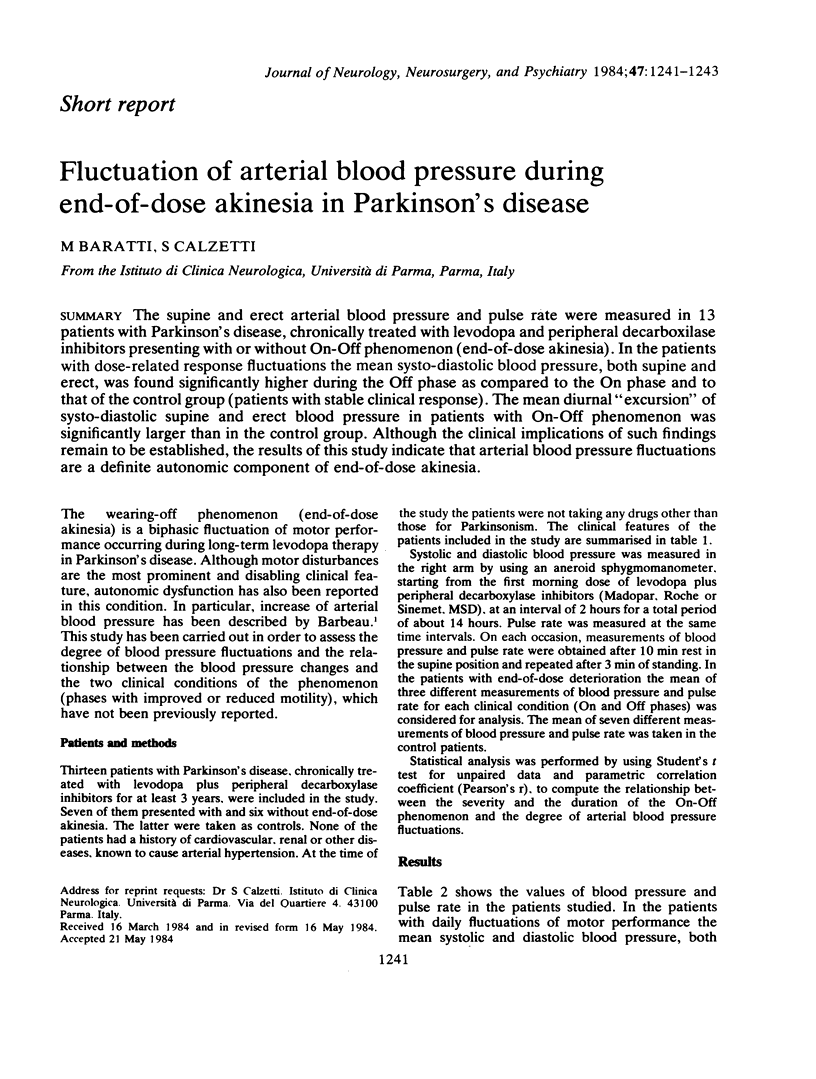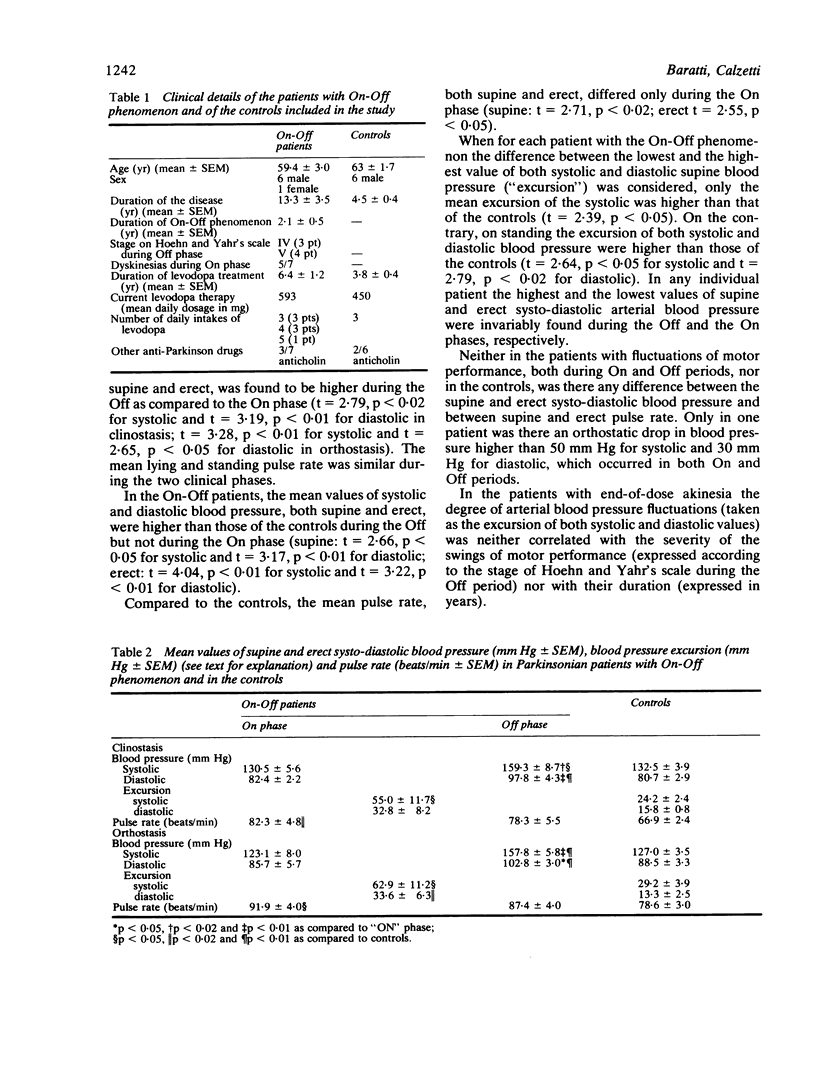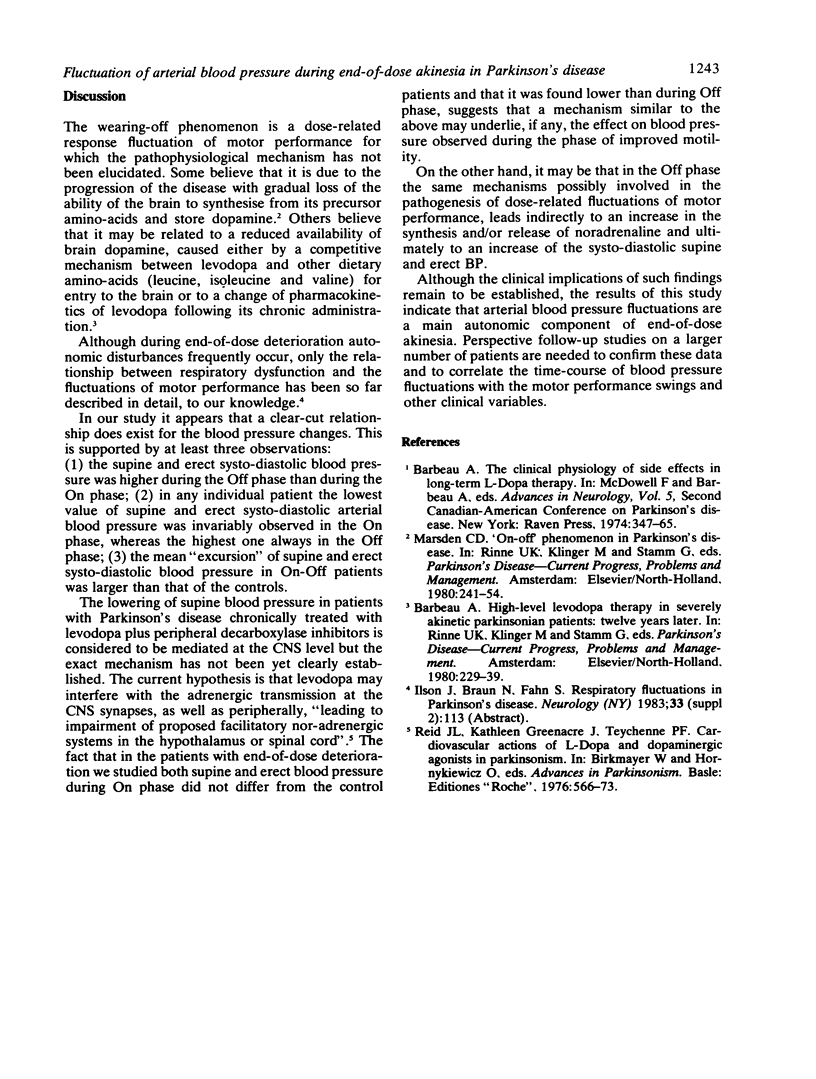Abstract
The supine and erect arterial blood pressure and pulse rate were measured in 13 patients with Parkinson's disease, chronically treated with levodopa and peripheral decarboxilase inhibitors presenting with or without On-Off phenomenon (end-of-dose akinesia). In the patients with dose-related response fluctuations the mean systo-diastolic blood pressure, both supine and erect, was found significantly higher during the Off phase as compared to the On phase and to that of the control group (patients with stable clinical response). The mean diurnal "excursion" of systo-diastolic supine and erect blood pressure in patients with On-Off phenomenon was significantly larger than in the control group. Although the clinical implications of such findings remain to be established, the results of this study indicate that arterial blood pressure fluctuations are a definite autonomic component of end-of-dose akinesia.
Full text
PDF




